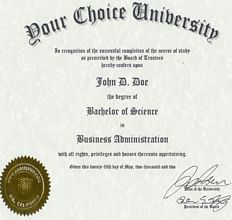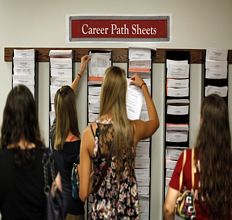GOOGLE ADSENSE
Financial Aid FAQs
Act NOW For Money For College! There are tons of colloquial expressions and quotes about waiting till the last minute and procrastinating. When it comes to obtaining funding for a college education, be warned; never let any of those quotes about being a procrastinator describe you! Simply put, time is not on your side in reference to obtaining money for college. Why not? Because when it concerns the best sources, money is limited and dispersed on a first come first serve type of basis. The sources we are referring to are the scholarships, grants, work for college programs and internships that pay for schooling. These are classified as the best sources because they are not loans and there is no payback. Those sources should be your first point of college education funding and loans should be your last. Because time is of the essence, we have assembled the most popular frequently asked questions concerning financial aid. What is Financial Aid?
What Types of Financial Aid Are Available?
Are There Any Alternative Forms of Financial Aid? How Do I Start The Process of Obtaining Financial Aid? When Should I Apply For Financial Aid? Since you need information from your tax return from the previous year, you’ll want to file your taxes early. Once you have completed your taxes, complete the FAFSA Worksheet, then complete the FAFSA online and submit it. When you do not have pin numbers, be sure to print the signature page, sign it, and mail immediately to the address found on the bottom of the page. If the application is not signed, it will not be processed. What Happens After I Complete The FAFSA Application? Call the Federal processor at 1-800-433-3243 if you do not receive a copy of the report. Review your report carefully to make sure there are no mistakes. If you find an error, your school can help you with the correction or you may send it back to the processor yourself or go online to www.fafsa.ed.gov and make corrections.
Brad Matheson is a professional Financial Consultant who specializes in helping businesses and individuals resolve their debt issues. He believes that all debt problems can be solved with the right debt advice and aspires to help Americans learn all of their debt options and exercise all of their rights. Says, Matheson, “Don't allow the Student Loan Debt crisis or a Defaulted Student Loan to hinder or block your career aspirations or stymie your financial dreams, There is Student Loan Help available!” Source: http://studentloanwhiz.com/
| |
|
Student Loan and Financial Aid Educational
Resources:
Financial Aid
| Money for College
| Federal
Student
Loan | College Scholarship Search
Minority Scholarship | College Grants
| College Search | Perkins Loans | Stafford
Loans
Parent PLUS
Loans | GradPLUS
Loans | College
Scholarships | Private
Student Loan
Student Consolidation Loans | Financial Aid Acronyms | Financial Aid Glossary
StudentLoanWhiz.com is a leading information portal dedicated to helping students and their families find the financial resources they need to complete their education goals. StudentLoanWhiz.com is your trusted resource for student loans for schools in the United States. Whatever your needs, we’re here to simplify the process by providing an unbiased evaluation of virtually every type of student loan available. You provide the will and we'll help make the way.
About Us | Contact Us | Privacy Policy | Terms of Use | Disclaimer
Home | U.S. Department of Education | College News | Site Map
Copyright © Student Loan Whiz, 2007-2012 All Rights Reserved.
Powered by the Student Loan
Whiz











